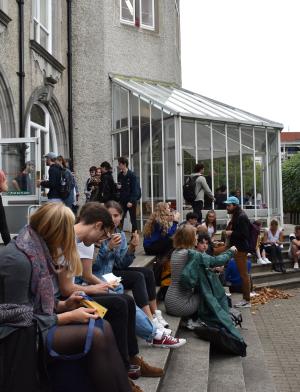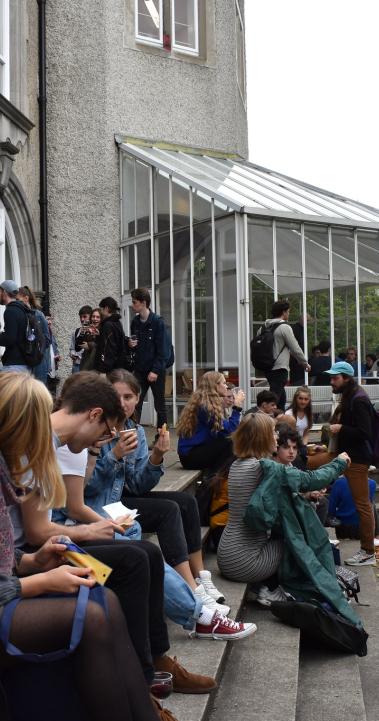How I Advanced My Leadership Skills Abroad
Although leadership is widely discussed among students, I don’t think it’s a word for everyone. In my opinion, there’s no need for everyone to acquire this quality and be a leader. A good world is not only made by outstanding leadership, but by effective cooperation, where a leader is just one role of many and where everyone can get involved.
I used to be a member of AIESEC, where leadership is the permanent topic. I tried hard to be active, to be responsible, and to do everything that made me a good leader, except I didn't know the reason I was doing it. I was aiming at changing the world, probably because all my peers were claiming it as their cause. I can tell from my experience that being a leader was miserable for me when I was wrongly put into the position. As a result, I think it’s important especially for easily confused young people to spend some time discovering their needs find their right place in this globalized world.
For instance, when I became the president of my school’s yoga club, I found my work exciting and inexhaustible, because I really enjoyed yoga and was eager to bring the club back to life. What I learned there is before asking “how can I be a leader?”, I should firstly ask “why do I want to be a leader?” For me, real leadership only comes when a person finds his overwhelmingly passion to make a change in certain circumstance.
I didn't encounter many difficulties during my preparation for study abroad, but for the past half month at the University of Glasgow, I’ve been challenged, caught in panic and trapped in upset. But every struggle means an opportunity to renew and grow, only if one overcomes. Fortunately, I have lived through it with the encouragement of others, and now I have some brand-new views, which seemingly have nothing to do with leadership, but which actually greatly contribute to the shaping of a good leader, as they’re the foundation or essential qualities for being a better person.
First, while abroad I learned to confront and acknowledge my shortfalls. I have to admit that my English is not good as I think, especially compared to those native speakers. In the very beginning, I would pretend that I understood what they were saying even though I didn’t catch a word, and was afraid to clarify by asking questions, which brought me great pain. But now I understand I need to accept who I am and where I stand. It’s natural for an English learner struggling with words in a new environment, and everyone is imperfect, even the greatest leader in the world. To accomplish a goal, it’s as crucial for a good leader to know what he lacks as what he has, before he can search for supplementary resources or the help of others effectively.
Second, while abroad I learned not to be picky when making friends. It’s very important for leaders and students who live abroad to develop extensive interpersonal relations, to obtain enough support.
Talking about my future career plan, I’ll try to find communication work in the Chinese non-profit sector and devote myself into philanthropy after graduation. I’ve been learning journalism and communication for more than five years, and I know it’s vital for Chinese volunteer organizations to find a right way to express their ideas, rebuild their reputation and gain back the trust of the public. In order to get an overview of the field, I took an internship in China Philanthropy Times before coming to the UK, and I found that most philanthropic activities were confined within the industry. Hence, I set three goals for my exchange in Glasgow.
The first one is participating and examining different voluntary practices and institutions in the UK, especially their way of organizing and promoting people, in order to have a firsthand taste in this experienced country (without violating British immigration law with my short-term study visa). The second goal is taking some public policy courses to deepen my understanding of social problems and learn the viable way to deal with them.
I’m now taking a course called Understanding Glasgow in a Globalized World, which gives insightful local experience to regenerate a de-industrialized city. Last but most practically, I want to improve my English and cultivate my international view in a comprehensive way, which may do good to cross-cultural communication or even my job hunting if applying for a transnational NGO in the future.
Jinwen Li
Host: University of Glasgow
Home: Xiamen University
School of Journalism and Communication
李瑾雯 厦门大学 新闻传播学院













